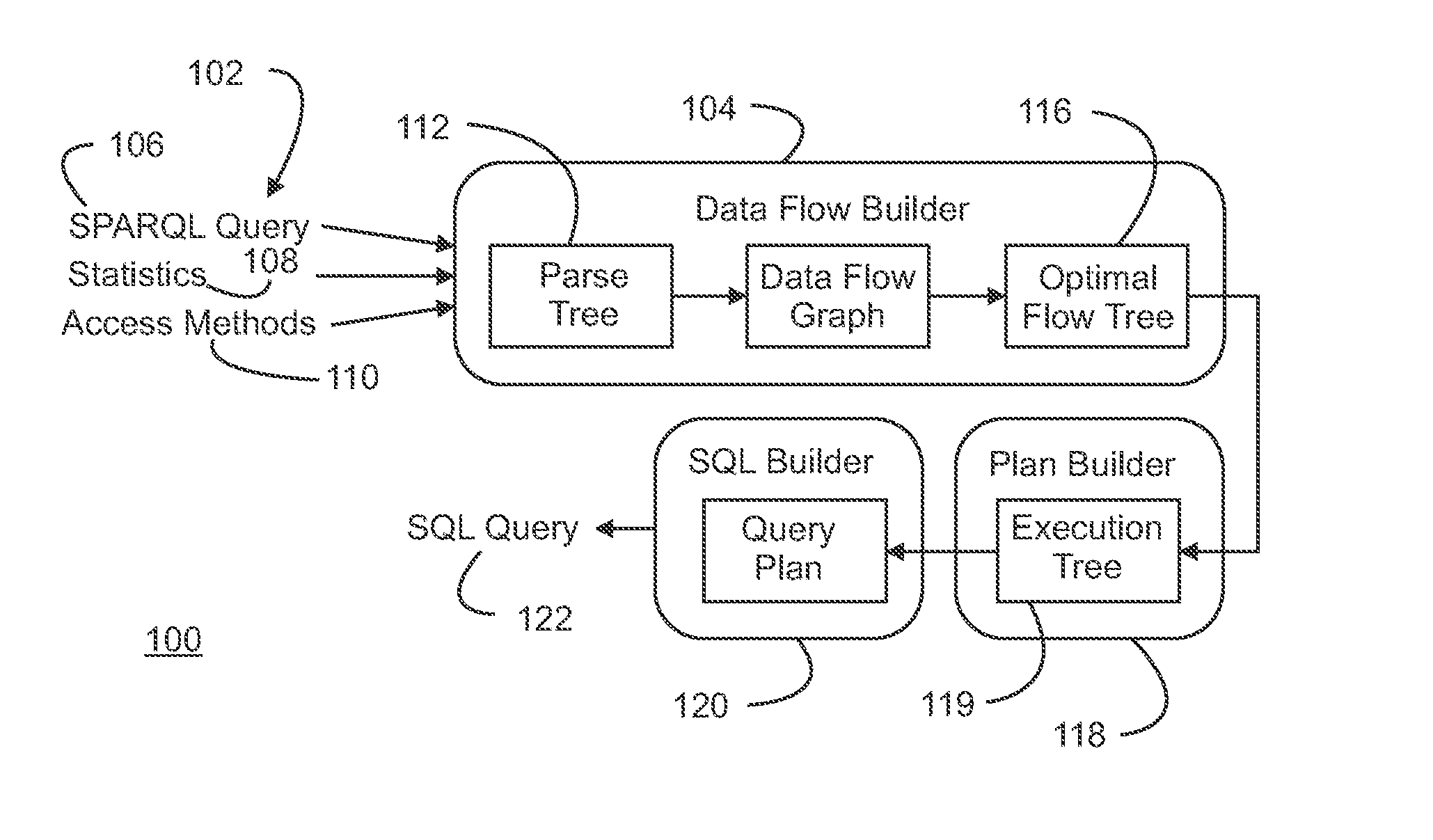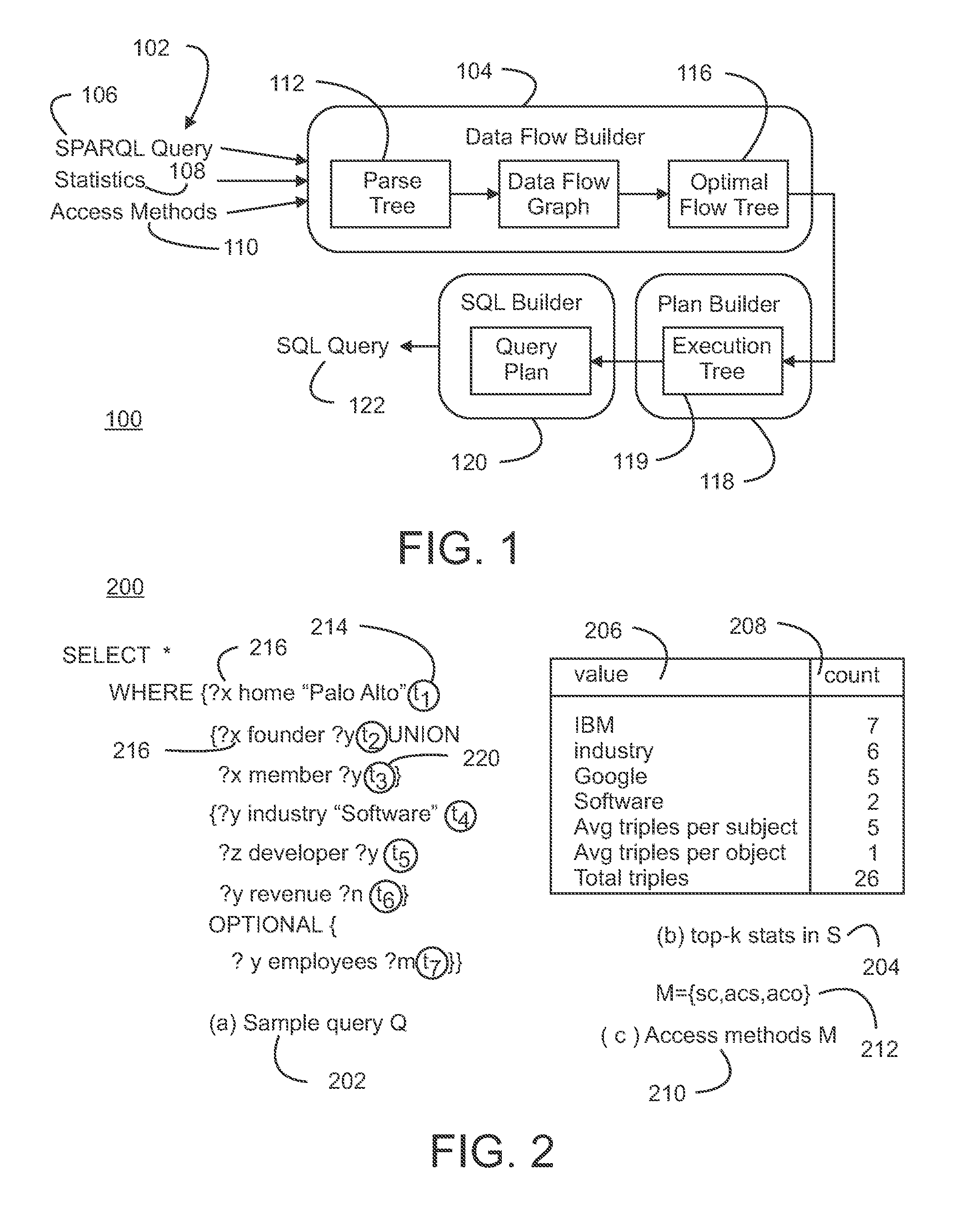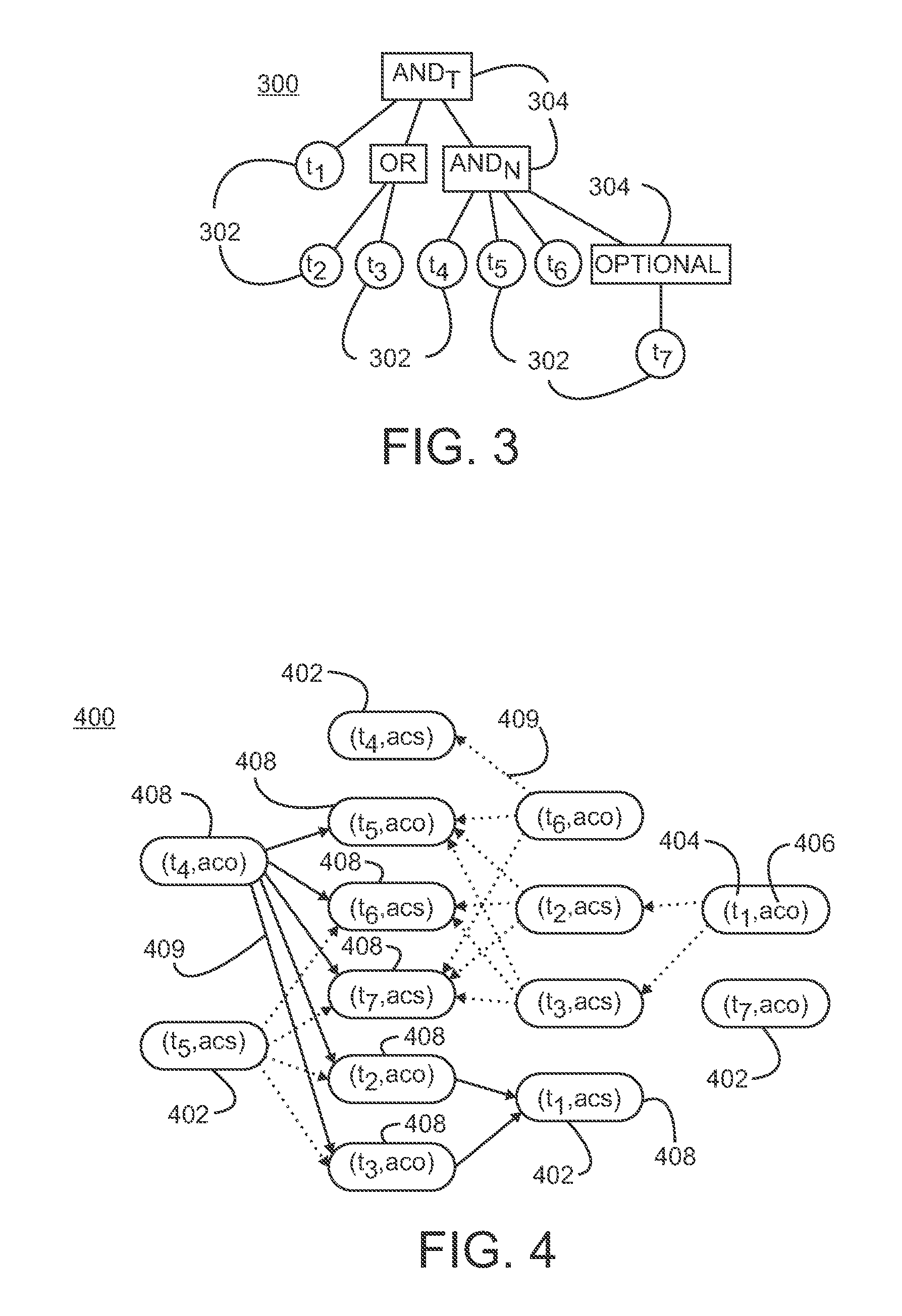Method and apparatus for optimizing the evaluation of semantic web queries
a semantic web and query technology, applied in the field of semantic web queries, can solve the problems of particularly complex translation part, and achieve the effect of efficient evaluation and optimization
- Summary
- Abstract
- Description
- Claims
- Application Information
AI Technical Summary
Benefits of technology
Problems solved by technology
Method used
Image
Examples
Embodiment Construction
[0019]Systems and methods in accordance with the present invention are directed to a hybrid SPARQL query optimization technique that is generic and independent of the choice of representing RDF data in relational schema or otherwise. Therefore, the query optimization techniques can be used by any other optimizer in this space. Optimizations that are representation-agnostic are separated from those that are representation-specific. This modularity provides significant advantages and the ability to fine-tune the storage and query optimization layers independently of each other.
[0020]Exemplary embodiments in accordance with the present invention achieve huge performance gains by independently optimizing SPARQL and the SPARQL to SQL. The hybrid SPARQL query optimization technique is generic and independent of how the RDF data are represented, e.g., relational schema, or otherwise. In fact these techniques can be applied directly to query optimization for native RDF stores. The query tra...
PUM
 Login to View More
Login to View More Abstract
Description
Claims
Application Information
 Login to View More
Login to View More - R&D
- Intellectual Property
- Life Sciences
- Materials
- Tech Scout
- Unparalleled Data Quality
- Higher Quality Content
- 60% Fewer Hallucinations
Browse by: Latest US Patents, China's latest patents, Technical Efficacy Thesaurus, Application Domain, Technology Topic, Popular Technical Reports.
© 2025 PatSnap. All rights reserved.Legal|Privacy policy|Modern Slavery Act Transparency Statement|Sitemap|About US| Contact US: help@patsnap.com



